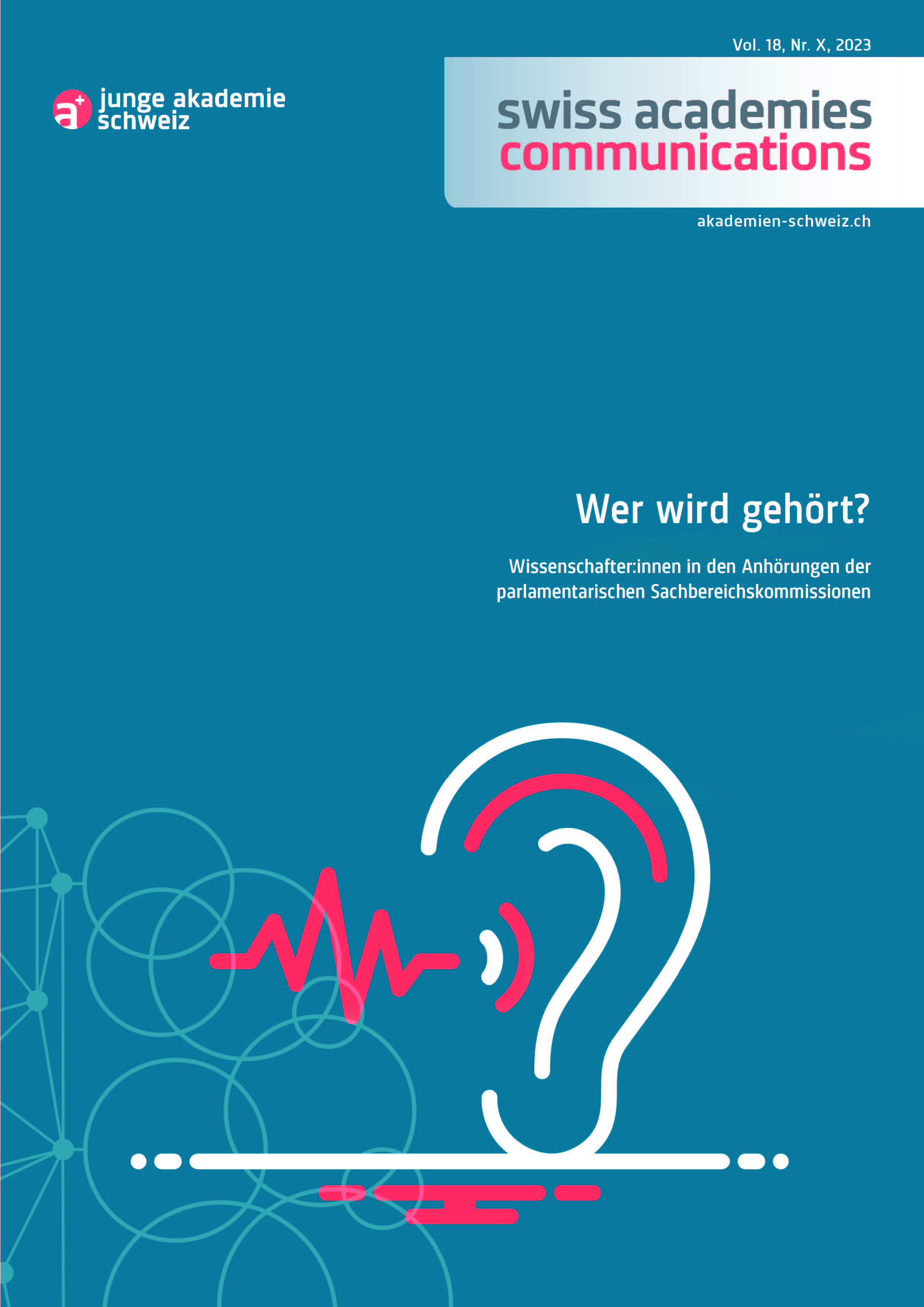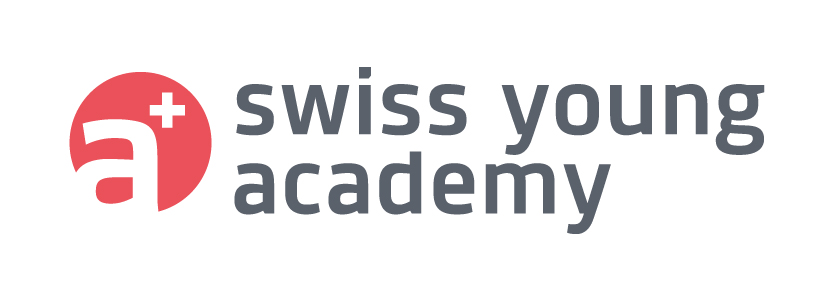Networking science.
How science scores points with politicians
Bern, 14 June 2023
Media release
Professional and verbal competency as well as credibility: these are important prerequisites for scientific experts to be invited to a hearing by parliamentary committees. This is the conclusion reached by the Swiss Young Academy’s project group “Who gets heard”. The group conducted 25 interviews with federal parliamentarians, employees of the parliamentary services and researchers working in Switzerland. It has now published its findings under the title Who gets heard? Scientific experts at the Hearings of Parliamentary Specialist Committees. “Many researchers don’t know how scientific insights and expertise are incorporated into the legislative process at the federal level,” says co-speaker Silvia Maier, explaining the motivation for publishing a practical guide. Although the hearings conducted by the specialist committees of the national Parliament are a well-known instrument for making one’s voice heard, “these hearings are generally confidential and are thus a kind of dark room for outsiders,” is how co-speaker Odile Ammann describes the initial impetus for the project. While political decision-makers face great and complex challenges, surprisingly little is known about such crucial interfaces and how they present scientific hearings in parliamentary committees. The project group is now shedding light on the darkness. “We want to provide guidance so that scientists can successfully contribute their knowledge and research findings to the parliamentary phase of the legislative process,” says Silvia Maier.
The publication follows the following guiding questions: according to which criteria are scientific experts invited by the committees? How are these hearings held? Why is science involved in parliamentary work? What makes scientific experts credible? What is the attitude of politicians towards scientific experts who get involved in political debates? And how can scientific experts effectively contribute their expertise to the committees?
Apart from background information on the procedures, the publication also provides practical tips for scientific experts on how to make a successful appearance in the committees. Project member Servan Grüninger summarizes a core message: “What is key is the ability to argue in a comprehensible manner.” In addition, researchers should point out options for action that are politically relevant in the current context. But they should not engage in politics themselves. It takes a continuous dialogue to establish this relevance. “Scientific experts have to understand the current socio-political context in which politics is playing out in order to tailor the present state of knowledge to the current debate”, explains project member Darius Farman. This needs to be practised.
The report therefore shows that academic institutions are also challenged: it states that scientific policy advice also needs to be rewarded within science itself and sufficient resources be made available so that researchers can acquire the necessary skills. This includes, in particular, strengthening training and further education programmes as well as crediting experience of providing scientific policy advice in appointment and recruitment procedures, to the extent that this makes sense in relation to the respective job profile and the research area.
Karin Spycher
Head of Swiss Young Academy
House of Academies
Laupenstrasse 7
P.O. Box
3001 Bern
Switzerland

